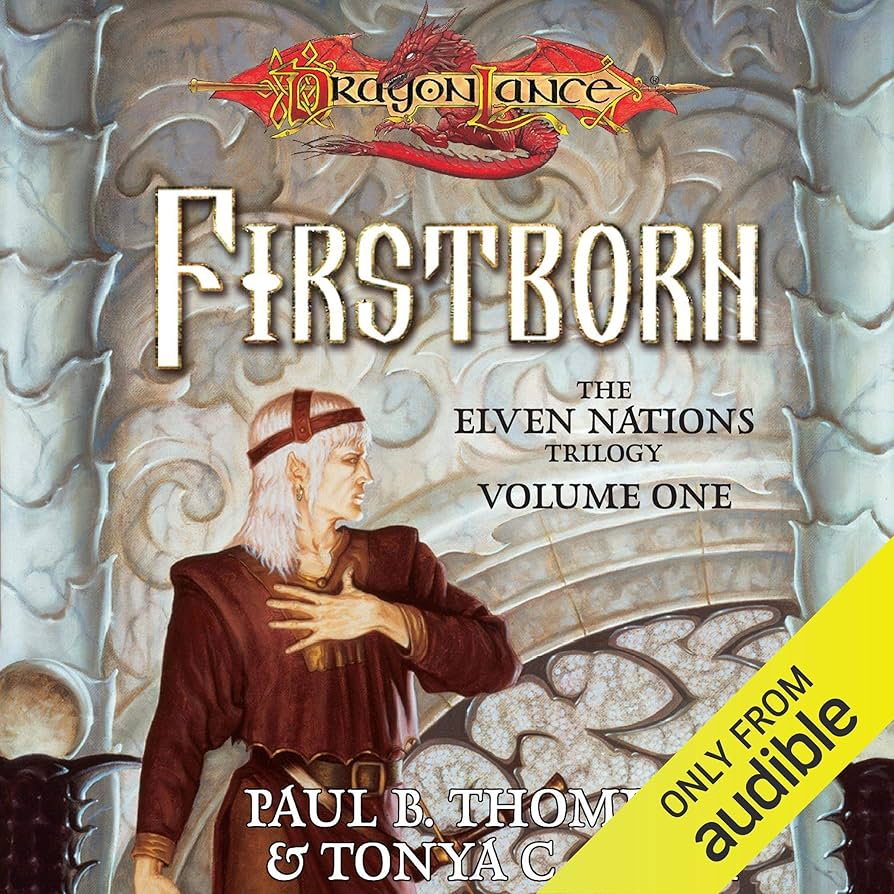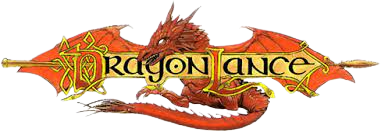Firstborn

Table of Contents
ToggleOverview
Firstborn takes readers deep into the early history of the elves of Krynn, focusing on the founding of the Silvanesti nation and the bitter rift between two brothers that would forever divide elvenkind. Set long before the events of Chronicles or the Cataclysm, this novel tells a tale of nobility, jealousy, and civil war, all framed as the origin story of the Silvanesti and Qualinesti elves.
The book is mythic in tone, sweeping in scope, and intensely personal, centered on Kith-Kanan and Sithas, the firstborn twins of an elven king, whose ideological and emotional differences ultimately shape the destiny of their race.
Main Characters
Kith-Kanan
- The younger twin, more open-minded and sympathetic to humans and outsiders.
- Prefers peace, diplomacy, and adaptation to the changing world.
- A capable warrior and natural leader with a deep sense of justice and personal conflict over loyalty vs. freedom.
Sithas
- The older twin and heir to the Speaker of the Stars.
- Arrogant, traditionalist, and obsessed with elven purity, law, and superiority.
- Deeply ambitious and resentful of his brother, even as he tries to uphold his own version of elven destiny.
Sithel
- The father of the twins and current Speaker of the Stars, who seeks to preserve elven legacy but unintentionally sows seeds of division by favoring Sithas politically and Kith-Kanan emotionally.
Hermathya
- A noble elven woman and Sithas’s politically arranged bride, caught in the middle of the twins’ rivalry.
Sarianna
- A human woman whom Kith-Kanan grows close to, representing the forbidden blending of cultures and hearts.
Setting
- Takes place in Silvanesti, the vast and ancient elven kingdom of southern Ansalon.
- The world is still young and dynamic, with elves in full control of their lands but beginning to face the emerging power of humans and the changing political landscape.
- The story spans court intrigue, frontier exploration, and eventual civil war—laying the groundwork for the elven divide between Silvanesti and Qualinesti.
Plot Summary
The Birth of the Twins
Sithas and Kith-Kanan are born to Sithel, the Speaker of the Stars. Though Sithas is the firstborn and heir, the twins are opposites in every way: Sithas is proud, conservative, and elitist; Kith-Kanan is adventurous, empathetic, and progressive.
Their rivalry is personal and ideological, intensifying as they grow and take on different roles in elven society.
Shifting Alliances
Kith-Kanan begins advocating for trade and diplomacy with humans, whom many elves consider inferior. He is drawn to the world outside of Silvanesti and challenges the xenophobic attitudes of his people.
Sithas, meanwhile, rises in courtly power and begins to enforce stricter elven hierarchy and isolation, seeing Kith-Kanan’s efforts as dangerous and traitorous.
Tensions boil as Kith-Kanan falls in love with a human woman—an unthinkable relationship in the eyes of Silvanesti nobility.
The Breaking Point
When Sithel dies unexpectedly (possibly assassinated), Sithas ascends as Speaker of the Stars. His first act is to marginalize his brother, essentially forcing Kith-Kanan and his supporters into exile.
But Kith-Kanan’s following grows, especially among those elves who have lived near humans and believe cooperation—not purity—will ensure survival.
Eventually, civil war erupts between the Silvanesti loyalists and the exiled faction led by Kith-Kanan.
Legacy
The war doesn’t end in complete victory or destruction, but in a bitter division that will never fully heal. Kith-Kanan goes on to found the Qualinesti nation, a kingdom of elves with more open, adaptable ideals.
Sithas remains in Silvanesti, ruling over a more closed and dogmatic society. The two brothers never reconcile, and their rift becomes a central trauma in elven culture, echoing through all later Dragonlance stories.
Themes
- Brotherhood and Betrayal – The emotional core is the tragic breakdown between Sithas and Kith-Kanan—two princes who loved their people but couldn’t love each other.
- Tradition vs. Progress – The story is a powerful exploration of cultural rigidity vs. adaptation in the face of a changing world.
- Identity and Division – The founding of the two elven nations becomes a parable about how societies fracture over fear, pride, and difference.
- Power and Responsibility – The question of who should lead—and how they should lead—is central to the moral dilemma of the novel.
- Love Across Boundaries – Kith-Kanan’s forbidden romance with a human woman symbolizes the tension between purity and empathy.
Tone & Style
- Mythic and tragic, like a classical epic or ancient legend.
- Politically and emotionally driven, with rich dialogue and personal introspection.
- Less action-heavy than some Dragonlance books, but full of drama, symbolism, and weighty choices.
- Feels like a foundational text—you’re reading the origin myth of the elves.
Reception
Firstborn is widely respected for:
- Giving deep, nuanced history to the elves of Krynn
- Presenting a powerful family tragedy within an epic fantasy frame
- Providing strong characterization for both Kith-Kanan (a beloved figure) and Sithas (a tragic cautionary tale)
Critics sometimes note:
- Pacing can be slow, particularly for readers seeking battle and action
- The focus is very dialogue-heavy and internal, prioritizing drama over spectacle
Still, it’s considered essential reading for fans who want to understand elven politics, the split between Silvanesti and Qualinesti, and the legacy that shapes Laurana, Porthios, and Gilthas in later stories.
Final Thoughts
Firstborn is a tragic, emotionally rich saga about the origins of elven division in Krynn. It doesn’t rely on dragons, warlords, or gods—but instead delivers a personal, powerful tale of two brothers who could have ruled together but let pride and fear tear them apart.
Recommended for:
- Fans of elven lore and worldbuilding
- Readers who enjoy family sagas and political drama
- Anyone who wants to understand the historical weight behind elven actions in Chronicles and beyond
“They were born together, bound by blood—but the firstborn would lead a kingdom, and the second would lead a people.”
